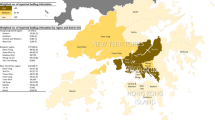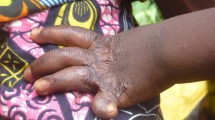Of insects that are not carnivorous but that live on the juices of living flesh, such as lice and fleas and bugs, all, without exception, generate what are called ‘nits’, and these nits generate nothing.
Aristotle, The History of Animals, Book V.
Abstract
Although bedbug infestation is not a new public health problem, it is one that is becoming more alarming among healthcare professionals, public health officials, and ethicists given the magnitude of patients who may be denied treatment, or who are unable to access treatment, especially those underserved populations living in low income housing. Efforts to quarantine and eradicate Cimicidae have been and should be made, but such efforts require costly interventions. The alternative, however, can further exacerbate the already growing problems of injustice, i.e., unfair treatment of patients, inaccessibility of needed resources. In the following paper, I examine the ramifications of denying access to medical care, among other healthcare justice dilemmas surrounding bedbug infestations. I also explore the value of health, and how healthcare professionals and public officials often feel as though bedbugs are not a priority because they, themselves, are not diseases, regardless of the fact they cause physical and mental problems that affect a person’s health. I propose recommendations for improving the health and well-being of those vulnerable populations who are facing a difficult and growing public health problem that is currently being ignored in medical and public health ethics literature, regardless of increased media attention and unusual habitats of localized infestations, e.g., Statue of Liberty, New York City.
Similar content being viewed by others
Notes
Although the examples of bedbug infestations and their media attention are presented in this paper from a US-centric perspective, the negative effects of bedbugs are not localized, and the ethical framework and recommendations identified may be beneficial to individuals and populations throughout the world who are confronted with this public health problem.
Propoxur (sold as Baygon) is one commercially available chemical that is still effective in killing bedbugs. This chemical is toxic to humans if ingested. Pesticide manufacturers dropped their registration of propoxur, after recognizing that indoor use of certain pesticides would not pass the more stringent testing requirements under the Food Quality Protection Act (FQPA) of 1996.
Ohio Bill To enact sections 3701.137 and 3707.012 of the Revised Code to establish the Bed Bug Awareness, Education, and Prevention Program and to require boards of health to adopt vermin control policies under which bedbug infestations are treated in the same manner as other infestations and to make an appropriation. http://www.legislature.state.oh.us/bills.cfm?ID=129_HB_129 (accessed 13 July 2011)
References
American Medical Association. 2011. Code of medical ethics. Principles of Medical Ethics http://www.ama-assn.org/ama/pub/physician-resources/medical-ethics/code-medical-ethics/principles-medical-ethics.page. Accessed 26 Sep 2011.
Anderson, Alice. 2011. The decade of bedbugs and fear. Environmental Health Insights 5: 53–54.
Aristotle, Book V, Section 31, The History of Animals by Aristotle translated by D’Arcy Wentworth Thompson eBooks@Adelaide 2007, The University of Adelaide Library University of Adelaide, South Australia 5005.
Associated Press of ABC News. 2011. Woman with bedbug bites denied medical treatment. May 31, 2011. http://abcnews.go.com/Health/colorado-woman-refused-medical-procedure-bed-bug-bites/story?id=13725067. Accessed 2 Jan 2011.
Associated Press of Now Public. 2011. Cincinnati ranks number one in bedbugs. July 5, 2011. http://www.nowpublic.com/health/cincinnati-ranks-number-one-bedbugs-2811052.html. Accessed 20 Jan 2011.
Associated Press of se Missourian. 2011. Bedbugs infest KC home for mentally ill. Se Missourian, Tuesday, February 8, 2011. http://www.semissourian.com/story/print/1701282.html. Accessed 1 Feb 2011.
Bencheton, A.Levy, J.M. Berenger, P. Del Giudice, P. Delaunay, F. Pages, and J.J. Morand. 2011. Resurgence of bedbugs in southern France: A local problem or tip of the iceberg? Journal of the European Academy of Dermatology and Venerology 25: 599–602.
Centers for Disease Control and Prevention (CDC). 2010. Joint statement on bed bug control in the United States from the US Centers for Disease control and prevention and the US Environmental protection agency (EPA) www.cdc.gov.nceh/ehs/Publications/Bed_Bugs_CDC-EPA_Statement.htm and www.cdc.gov/nceh/ehs/Topics/bedbugs.htm. Accessed 12 July 2011.
Cooper, R. 2007. Are bed bug dogs up to snuff? Pest Control 75: 49–51.
Corea, Renee. 2009. The Central Ohio Bed Bug Task Force: An interview with Paul Wenning. New York vs. Bed Bugs: http://newyorkvsbedbugs.org/2009/05/05/the-central-ohio-bed-bug-task-force-an-interview-with-Paul-Wenning. Accessed 20 July 2011.
Cowan, Frank. 1865. Curious facts in the history of insects including spiders and scorpions. A complete collection of the legends, superstitions, beliefs, and ominous signs connected with insects; together with their uses in medicine, art, and as food; and a summary of their remarkable injuries and appearances, nonfiction. Philadelphia: J. B. Lippincott and Company. (Accessible on-line: http://www.archive.org/stream/curiousfactsinhi00cowan/curiousfactsinhi00cowan_djvu.txt. Accessed 24 Sep 2011).
Criado, Paulo Ricardo, Walter Belda Junior, Roberta Fachini Jardim Criado, Roberta Vasconcelos e Silva, and Cidia Vasconcellos. 2010. Bedbugs (Cimicidae Infestation): The worldwide renaissance of an old partner of human kind. Brazilian Journal of Infectious Diseases 15(1):74–80.
Delaunay, Pascal, Veronique Blanc, Pascal Del Guidice, Anna Levy-Bencheton, Olivier Chosidow, Pierre Marty, and Philippe Brouqui. 2011. Bedbugs and infectious diseases. CID 52: 200–210.
Doggett, Stephen L., and Richard Russell. 2009. Bedbugs: What the GP needs to know. Australian Family Physician 38(11): 880–884.
Eddy, C., and S.C. Jones. 2011. Bed bugs, public health, and social justice: Part 2, an opinion survey. Journal of Environmental Health 73(8): 15–17.
Erdogan, Jennifer, Terri Martin, and Rosamond Payne. 2010. EDs trying not to let the bed bugs bite. ED Management 22(9): 100–101.
Goddard, J. 2003. Bed bugs bounce back: But do they transmit disease? Infectious Medical 20: 473–474.
Goddard, J., and R. deShazo. 2009. Bedbugs (Cimex lectularius) and clinical consequences of their bites. JAMA 301: 1358–1366.
Harvard Health. 2011. Easing bedbug anxiety: What you need to know about the recent bedbug resurgence. Harvard Women’s Health Watch January edition (http://www.health.harvard.edu).
Hwang, Stephen W., Tomislav J. Svoboda, Iain J. De Jong, Karl J. Kabasele, and Evie Gogosis. 2005. Bed bug infestations in an urban environment. Emerging Infectious Diseases 11(4): 533–538.
Lee, In-Yong, Han-II Ree, Song-Jun An, John Alderman Linton, and Tai-Soon Yong. 2008. Reemergence of the bedbug cimex lectularius in seoul. The Korean journal of parasitology 46(4): 269–271.
May, M. 2007. Bedbugs bounce back in all 50 states. San Francisco Chronicle April 8: A1–A8. http://www.sfgate.com/cgi-bin/article.cgi?f=/c/a/2007/04/08/MNGIDP4V7K1.DTL. Accessed 12 March 2012.
Messer, Aaron. 2011. Letter to the editor: Response to “Bed bugs, Public Health, and Social Justice” Journal of Environmental Health 73(10): 40, 33.
McSweeney. 2010. Timothy internet tendency: Global War on Bedbugs: Letters from Bedbug City, Column 8, 4/2/2010: http://www.mcsweeneys.net/articles/column-8-an-apparently-random-survey-of-the-bedbug-in-literature-song-television-and-folklore-part-2). Accessed 13 July 2011.
Nussbaum, Martha C. 2002. Beyond the social contract: Capabilities and global justice http://cfs.unipv.it/sen/papers/Nussbaum.pdf. Accessed 1 Mar 2012.
Nussbaum, Marth C. 2006. Frontiers of Justice: Disability, nationality, species membership. Cambridge, MA: The Belknap Press of Harvard University Press.
Ohio Department of Health (ODH). 2011. Ohio bed bug workgroup: Final report and recommendations to the governor and Ohio general assembly. Ohio Department of Health Zoonotic Disease Program.
Pfiester, Margie, Philip G. Koehler, and Roberto M. Pereira. 2008. Ability of bed but-detecting canines to locate live bed bugs and viable bed bug eggs. Journal of Economic Entomology 101(4): 1389–1396.
Rossi, Lois. 2010. Bed bugs: A public health problem in need of a collaborative solution. Journal of Environmental Health 72(8): 34–35.
United States Environmental Protection Agency. 2011. www.epa.gov/pesticides/bedbugs. Accessed 12 July 2011.
University of Ohio Institute for Policy Research. 2011. Now Public Forum at http://www.nowpublic.com/health/cincinnati-ranks-number-one-bedbugs-2811052.html. Accessed 12 Jan 2012.
Usinger, R.L. 1966. Monograph of Cimicidae (Hemiptera–Heteroptera) Vol. 7, 50. College Park, MD: Entomological Society of America.
Von Drehle, David, and Dawn Reiss. 2010. This really sucks. Time 176(14): 36–38.
Wang, Changlu, Wan-Tien Tsai, Richard Cooper, and Jeffrey White. 2011. Effectiveness of bed bug monitors for detecting and trapping bed bugs in apartments. Entomological Society of America. Journal of Economic Entomology 104(1): 274–278.
World Medical Association. 2006. WMA International code of medical ethics. Adopted by the 3rd General Assembly of the World Medical Association, London, England, October 1949; last amended by the 57th WMA General Assembly, Pilanesberg, South Africa, October 2006. http://www.wma.net/en/30publications/10policies/c8/index.html.pdf?print-media-type&footer-right=[page]/[toPage]. Accessed 1 Jan 2012.
Acknowledgments
I would like to thank members and attendees of the European Society for Philosophy of Medicine and Healthcare (ESPMH) for providing support and excellent commentary on this paper. A portion of this paper was presented in Zurich, Switzerland, August 2011 at the ESPMH conference.
Author information
Authors and Affiliations
Corresponding author
Rights and permissions
About this article
Cite this article
Aultman, J.M. Don’t let the bedbugs bite: the Cimicidae debacle and the denial of healthcare and social justice. Med Health Care and Philos 16, 417–427 (2013). https://doi.org/10.1007/s11019-012-9404-x
Published:
Issue Date:
DOI: https://doi.org/10.1007/s11019-012-9404-x




